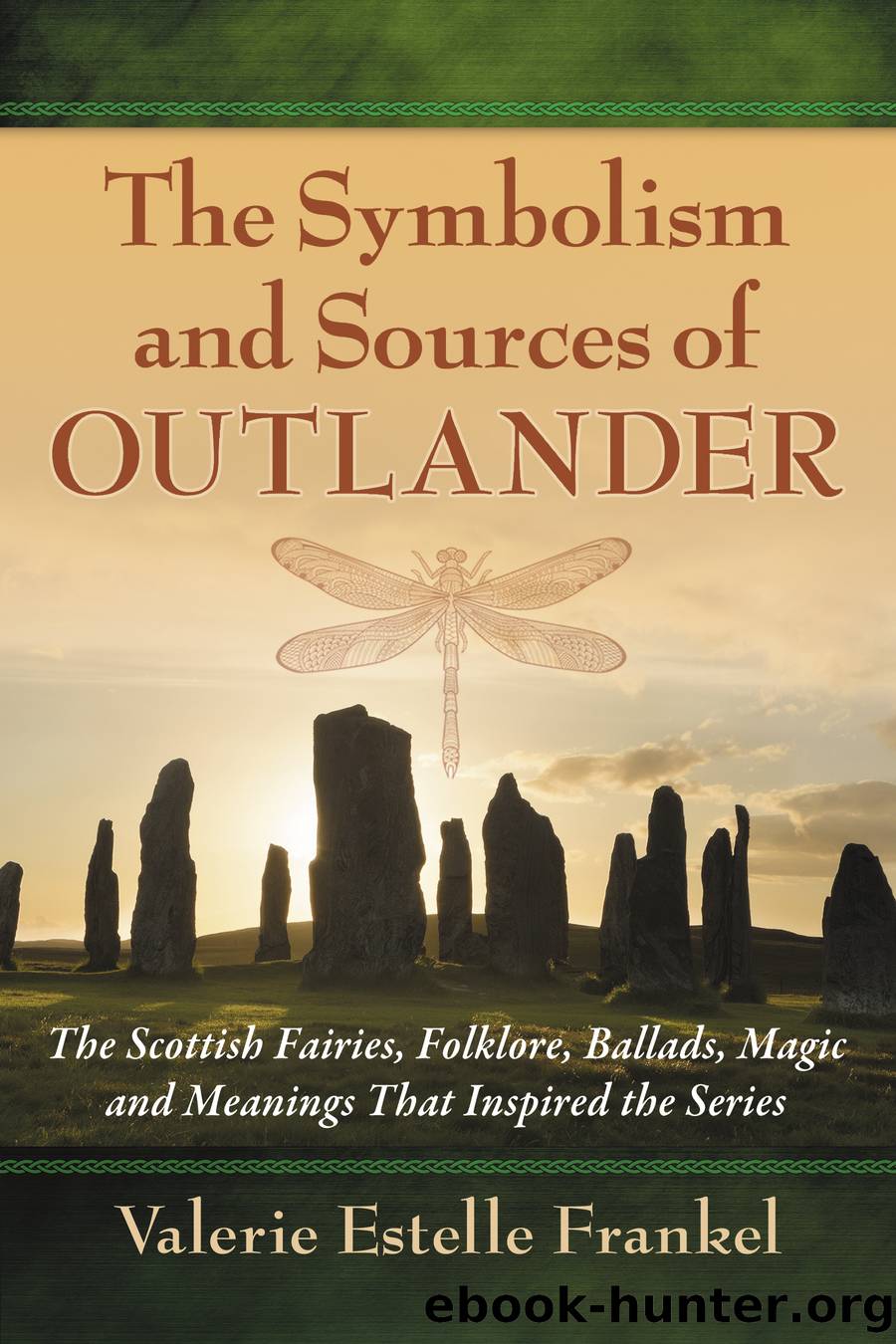The Symbolism and Sources of Outlander by Valerie Estelle Frankel

Author:Valerie Estelle Frankel
Language: eng
Format: epub
Publisher: McFarland & Company, Inc., Publishers
Published: 2015-04-24T00:00:00+00:00
Jamie emphasizes the growing conflict between rationalism and the old myths when he tells Claire on the show: âIâm an educated man, mistress, if I may be so bold. Maybe not as educated as you, but I had a tutor, a good one. He taught me Latin and Greek and such, not childhood stories of fairies, devils, waterhorses in lochs. But I am also a Highlander, born and bred, and I dinna believe in tempting fate by making light of Old Nick in his very own kirkyardâ (Episode 103). After he hunts, he faithfully says the gralloch prayer, âso old that some of the words were no longer in common use,â for any animal killed that was larger than a hare (The Drums of Autumn, ch. 15).
As Roger notes, most of the history of the Highlands is oral, up to the mid-nineteenth century or so. âThat means there wasnât a great distinction made between stories about real people, stories of historical figures, and the stories about mythical things like water horses and ghosts and the doings of the Auld Folkâ (Voyager, ch. 3). Gabaldon adds, âWhether Highlands or Lowlands ⦠theyâre story-telling cultures, both in terms of the Highlandsâ rich oral tradition, and the Lowlandsâ remarkable literary heritage of the 19th and 20th centuriesâ (Brittain).
Writing was considered a sacred act by many early people including the Celts. It is for this reason that the Celts had a strong bardic tradition, even among their magical folk, as very little was believed safe to commit to paper.
Gaelic bards and historians prided themselves in the cultivation of memory for the oral transmission of information and records, a task which they accomplished with the aid of poetic conventions, thematic paraphrase and aphoristic formulas of stock idiomatic cultural meaning (the phrase âbe literalâ had no meaning prior to the coming of the literate Christians). The spoken ire of a poet would maim a king through sympathetic magic, while his blessing could bring prosperity [Cairney 7].
Download
This site does not store any files on its server. We only index and link to content provided by other sites. Please contact the content providers to delete copyright contents if any and email us, we'll remove relevant links or contents immediately.
| Coloring Books for Grown-Ups | Humor |
| Movies | Performing Arts |
| Pop Culture | Puzzles & Games |
| Radio | Sheet Music & Scores |
| Television | Trivia & Fun Facts |
Spare by Prince Harry The Duke of Sussex(5195)
Paper Towns by Green John(5190)
Machine Learning at Scale with H2O by Gregory Keys | David Whiting(4313)
Never by Ken Follett(3954)
Fairy Tale by Stephen King(3394)
Learning C# by Developing Games with Unity 2021 by Harrison Ferrone(3354)
Reminders of Him: A Novel by Colleen Hoover(3116)
The Man Who Died Twice by Richard Osman(3077)
Fantastic Beasts and Where to Find Them: Illustrated edition by J.K. Rowling & Newt Scamander(3026)
Will by Will Smith(2919)
0041152001443424520 .pdf by Unknown(2845)
How The Mind Works by Steven Pinker(2816)
Never Lie: An addictive psychological thriller by Freida McFadden(2619)
Fantastic Beasts and Where to Find Them: The Original Screenplay by J. K. Rowling(2518)
It Starts With Us (It Ends with Us #2) by Colleen Hoover(2367)
Rationality by Steven Pinker(2363)
Borders by unknow(2313)
The God delusion by Richard Dawkins(2309)
Friends, Lovers, and the Big Terrible Thing by Matthew Perry(2230)
